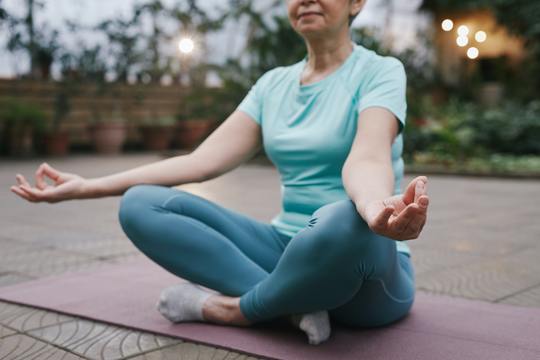No one enjoys the thought of aging, or at least it’s safe to say most of us don’t. But getting older doesn’t mean we can’t stay healthy and enjoy life along the way. When thinking about the changes you need to make to lead a healthier lifestyle, there are a few key things to consider. Making small, or big, changes in these areas can ensure you are feeling your best and help you to add years to your life.
- Eat well. This is an area where you can start small and make little changes along the way. Avoid processed foods, refined sugars, too much sodium, unhealthy fats and use oils for cooking instead of solid fats. Eating this way may help you avoid heart disease, cancer, Parkinson’s and Alzheimers. You’ll also start to notice how much better you feel each day.
- Exercise. (You knew this one was coming!) The Department of Health and Human Services suggests 2.5 to 5 hours a week of moderate-intensity exercise. Aiming for this, by breaking it down each day, significantly reduces your risk of heart disease and cancer while lowering stress and improving bone health. Going on walks or hikes, swimming, riding bikes and being outdoors in nature are all good ways to stay physically active and help you get that exercise in.
- Stay hydrated. Drinking plenty of water and other non alcoholic fluids improves energy levels and brain function.
- Keep your brain healthy. Nourish relationships with friends and family to help improve your mental and physical health. We know that loneliness can lead to depression, so be sure to pay attention to your feelings and reach out if you’re feeling isolated. Having a pet may also lower blood pressure, keep loneliness at bay and improve moods. It’s also important to participate in activities and hobbies that make you happy. And finally, challenging your brain with puzzles, reading and trying new things can help too.
- Limit alcohol, don’t smoke, or use any tobacco products. These have all been linked to premature aging and higher risk of disease.
- Decrease Stress. While this one is a given, sometimes it is easier said than done. While you might not be able to completely rid yourself of the thing that is causing you stress, you can take steps to ensure you are handling the stress as well as you can. Get plenty of sleep, talk to friends, exercise, take vacations, try relaxation techniques like yoga, meditation and breathing exercises.
- Get plenty of rest. This is one of the oldest tricks in the book, but a lot of us fall short. This is important for your mental and physical wellbeing, but also lowers risk of heart disease and stroke, decreases inflammation in the body, reduces stress, anxiety and depression and improves focus and concentration.
- Schedule regular checkups with your doctor, dentist and eye doctor. Getting in the habit of seeing your doctor regularly helps with early detection. It is also important to see your dentist regularly too. Taking care of your mouth and teeth can help prevent gum disease, which has been linked to heart disease, stroke and bacterial pneumonia. Seeing a dentist could even help catch signs of other illnesses. According to the American Dental Association, a dentist can detect signs of infection, cancer, diabetes and nutritional deficiencies.
Life is busy, and because of that, we don’t always take the best care of ourselves. But it’s important to make our health a top priority to ensure a longer and healthier life full of family, friends and adventures.





